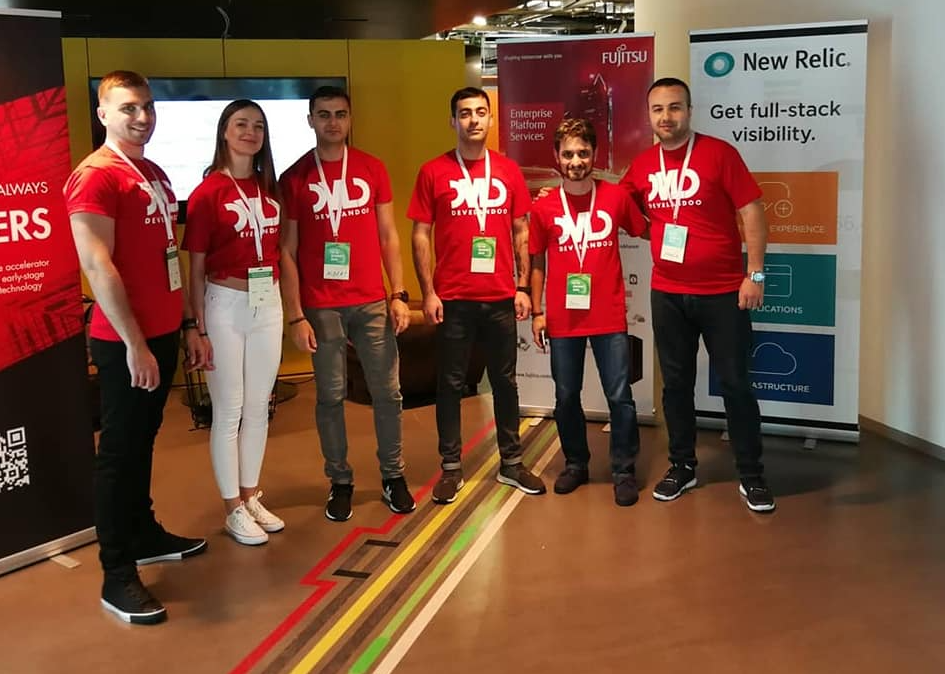We often hear the phrases “we have a great team” or “they don’t really have a team” or “this coach made a great team”. So, what exactly does it mean to be a team? Just because you have a group of people, does that mean you have a team? Certainly not!
A team implies a united collective. On the other hand, a group of people working individually is exactly that, just a group of people working towards individual goals. If we give a football coach 11 players to start a team, he does not yet have a real “team’’. A coach’s job, when done right, is to take the strength of each of these individuals and guide them to work together, ultimately uniting them under a common goal. He has to make them into a team. The effort the coach puts into building his team will determine if his team will be bad, average, very good, great or superior. This brings us to the definition of the word “team”. A group of individuals can be called a team only if they have a common goal and vision. They must understand that what counts is the positive impact of their contribution to the collective effort, and appreciate the fact that the sum of their common effort is greater than the sum of the effort of each individual team member.
A team is, therefore, a group of people that have a direct dependence on one another in order to achieve a common objective. The level of interaction between team members is crucial to their success. The goal and vision are set by their coach but they must collectively understand what common goal they are expected to achieve.
The nice thing is that all of the above is valid in the business world too. A group of people, in order to become a team, a great team, needs to move from the psychology and concept of “I” to the concept of “we”. From the concept of working, thinking and acting individually to the concept of collaboration.
So how do we go about building a great team in the real business world? It all starts with the recruiting phase.
If you have the opportunity of forming the team from scratch, either by hiring externally or involving people from within your organization, you need to start by listing the skills and knowledge you will need. We need to ask ourselves: “what are the essential skills and knowledge we need in order to achieve our objectives”? We need to be very careful here. Some people may have the knowledge and skills you need but may not be collaborative, open-minded, or have the creative mindset or analytical power of thinking you need. Therefore, selecting the right members to form your team is not an easy task. You not only need knowledgeable and skilled people but also people that love what they do, that have a passion and willingness to learn and grow, and most of all people that are open-minded and creative.
Building good communication channels among all team members is a critical first step in creating a great team. If there are gaps in team communication, if the team leader’s messages and directions are not clear, if we operate in an environment that does not support the flow of ideas and free discussions, there is no way we can build a great team. Team members need to be sure and confident that they have access to open communication with team members and leadership and that their ideas and opinions are respected. If communication is blocked in any way there will be severe consequences for the overall performance of your team.
Once you’ve assembled the right team and setup the appropriate communication system, team leaders must make sure, that all team members are treated equally and with dignity. If they show preferences or listen to the ideas of certain team members and ignore others, the trust will be lost and there is no way you can build a great team. People need to know they are equally treated and well respected. Your team members should have no insecurities about their overall behavior.
A major issue in building a great team often ignored or underestimated is providing team members the “tools” that will enable them to be creative, come up with ideas and solve problems. Relying totally on inspiration is not the best way in this world demanding creativity, ideation, and innovation. Helping team members develop their creative thinking skills is a must for today’s great teams. Fortunately, there are tools that can be used to support these challenges. What we want in business is to capitalize on the collective creative power of our team. This will lead to innovative approaches, project success, and differentiation.
Forming a great team is only the first step to success. Growth, profits success, sales, technology plans are all certainly extremely important. We will have an opportunity to talk about these too. However, it all starts with a great team!
ABOUT THE AUTHOR

Dr. Konis is a member of Develandoo board. He is a well-respected systems thinker, innovation expert, business growth consultant, presenter, and trainer. He is the founder and director of Innovage Consulting, his own innovation focused Boutique Consultancy firm. Innovage Consulting is a well-networked consultancy firm helping private and public enterprises, organizations and startups grow and compete in the new digital economy through better thinking, innovative approaches, technologies, and training. Dr. Konis is also an author and presenter in local and international conferences. He has served as the Director of the Cyprus Institute of Technology and the Cyprus Innovation Relay Centre. He has served several terms in the Board of the European Association for the Transfer of Technologies and Innovation, (TII) the Board of the Cyprus Research Promotion Foundations and the boards of several other organizations including listed companies.
- Topics:
- Develandoo Company Culture



